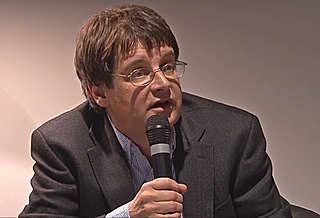A Quote by Vandana Shiva
When you don't take into account the way ecological systems work, then you do damage.
Related Quotes
In the last few decades we have seen the extraordinary rise of ecosocialist movements around the world inspired in large part by Marx's ecological critique of political economy. Marx was indeed influenced by some of the earliest attempts to develop what we now call an ecological-systems view, rooted in the concept of metabolism. Building on this perspective, Marx defined socialism as the rational regulation by the associated producers of the metabolism between society and nature in such a way as to conserve energy and to promote the satisfaction of human needs.
We see a world of abundance, not limits. In the midst of a great deal of talk about reducing the human ecological footprint, we offer a different vision. What if humans designed products and systems that celebrate an abundance of human creativity, culture, and productivity? That are so intelligent and safe, our species leaves an ecological footprint to delight in, not lament?
The moral of it is this: If you are of any account, stay at home and make your way by faithful diligence; but if you are 'no account,' go away from home, and then you will have to work, whether you want to or not. Thus you become a blessing to your friends by ceasing to be a nuisance to them-if the people you go among suffer by the operation.
The basic idea of Western science is that you don't have to take into account the falling of a leaf on some planet in another galaxy when you're trying to account for the motion of a billiard ball on a pool table on earth. Very small influences can be neglected. There's a convergence in the way things work, and arbitrarily small influences don't blow up to have arbitrarily large effects.
The reductionist measure of yield is to agriculture systems, what GDP is to economic systems. It is time to move from measuring yield of commodities, to health and well-being of ecosystems and communities. Industrial agriculture has its roots in war. Ecological agriculture allows us to make peace with the earth, soil and the society.
I certainly believe we all suffer damage, one way or another. How could we not,except in a world of perfect parents, siblings, neighbours, companions? And then there is the question on which so much depends, of how we react to the damage: whether we admit it or repress it,and how this affects our dealings with others.Some admit the damage, and try to mitigate it;some spend their lives trying to help others who are damaged; and there are those whose main concern is to avoid further damage to themselves, at whatever cost. And those are the ones who are ruthless, and the ones to be careful of.

































